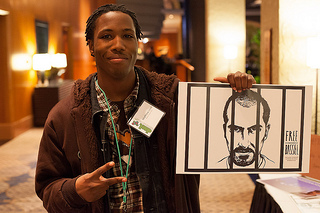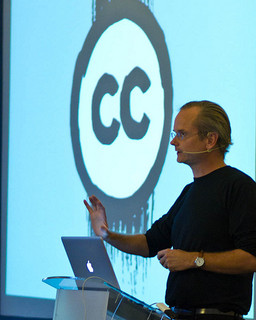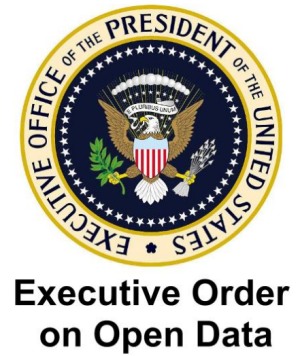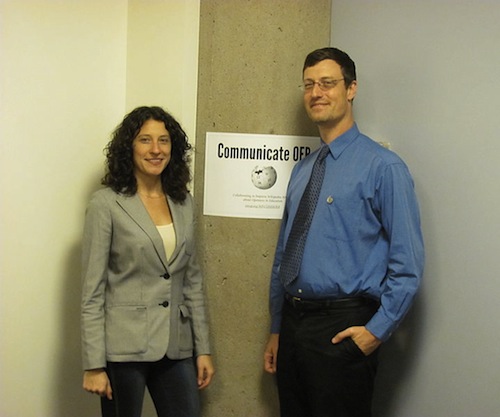Two weeks ago we wrote about the U.S. Executive Order and announcement of Project Open Data, an open source project (managed on Github) that lays out the implementation details behind behind the President’s Executive Order and memo. The project offers more information on open licenses, and gives examples of acceptable licenses for U.S. federal data. Some of this information is clear, while other pieces require more clarification. Below we’ve provided some commentary and notes on the licensing parts of Project Open Data.
Open Licenses
The Open Licenses page on Project Open Data says that a license will be considered “open” if the following conditions are met:
Reuse. The license must allow for reproductions, modifications and derivative works and permit their distribution under the terms of the original work.
Users can copy and make adaptations of the data. The government may use a copyleft license, thus requiring that adapted works be shared under the same license as the original. In our view, the reference to the government using a license is confusing. Works created by federal government employees in the in the public domain, and a license is not appropriate–at least as a matter of U.S. copyright law. More on this below.
The rights attached to the work must not depend on the work being part of a particular package. If the work is extracted from that package and used or distributed within the terms of the work’s license, all parties to whom the work is redistributed should have the same rights as those that are granted in conjunction with the original package.
Everyone is offered the work under the same public license.
Redistribution. The license shall not restrict any party from selling or giving away the work either on its own or as part of a package made from works from many different sources.
Third parties can sell the data verbatim or produce adaptations of the data and sell those.
The license shall not require a royalty or other fee for such sale or distribution.
Users don’t have to pay to use the licensed data.
The license may require as a condition for the work being distributed in modified form that the resulting work carry a different name or version number from the original work.
When the data gets remixed the licensor can require that the remixer note that their remixed version is different from the original.
The rights attached to the work must apply to all to whom it is redistributed without the need for execution of an additional license by those parties.
Public licenses must be used, which means that everyone gets offered the data under the same terms, without the need to negotiation individual licenses.
The license must not place restrictions on other works that are distributed along with the licensed work. For example, the license must not insist that all other works distributed on the same medium are open.
The license doesn’t infect other data or content that is distributed alongside the openly licensed data. It’s important that the open data is marked as such; the same goes for marking of the the non-open data.
If adaptations of the work are made publicly available, these must be under the same license terms as the original work.
This is a confusing statement, because it seems to require that all data be licensed under a copyleft license. This does not align with the licensing options listed in the Open License Examples page.
No Discrimination against Persons, Groups, or Fields of Endeavor. The license must not discriminate against any person or group of persons. The license must not restrict anyone from making use of the work in a specific field of endeavor. For example, it may not restrict the work from being used in a business, or from being used for research.
Anyone may use the licensed data for any reason.
Open License Examples
The Open License Examples page offers a helpful guide as to which open licenses will be accepted for government data released by federal agencies. As we noted in our earlier post, there is some confusion in that the Open Data Policy Memo says, “open data are made available under an open license that places no restrictions on their use.” Saying that data should be placed under a license with no restrictions doesn’t make sense, since even the most “open” license (such as CC BY) makes attribution to the author a condition on using the license. If the United States truly wishes to make federal government data available without restriction, it could consider mandating only those tools that accomplish this, for example the CC0 Public Domain Dedication or the Open Data Commons Public Domain Dedication and License.
Data and content created by government employees within the scope of their employment are not subject to domestic copyright protection under 17 U.S.C. § 105.
The fact that data and content created by federal government employees is not subject to copyright protection in the United States is a longstanding positive feature of the US code. But as noted here, this copyright-free zone only applies when talking about domestic protection, e.g. inside the United States. Outside its borders, the United States government could assert that, for example, one of its works is protected under French copyright law, and then enforce its copyright in France. It’s unclear how much this legal nuance is leveraged outside of the United States. But it does seem to create a challenge for the U.S. federal agencies in utilizing public domain dedication tools like CC0. This is because CC0 puts content into the worldwide public domain, whereas under Section 105 works created by federal government employees are only in the public domain in the United States. So, while it’s useful that works created by U.S. federal government employees is in the public domain in the United States, it’s a shame that this seems to preclude federal agencies from utilizing public domain tools like CC0, which would help communicate broad reuse rights easily and in machine-readable form. This begs the larger question, if information created by federal government employees is in the public domain in the United States, then is it inappropriate to license this data and content under one of the licenses noted below? And, if that is true, then what content will be licensed under the conformant licenses? Third party content?
When purchasing data or content from third-party vendors, however care must be taken to ensure the information is not hindered by a restrictive, non-open license. In general, such licenses should comply with the open knowledge definition of an open license. Several examples of common open licenses are listed below:
Content Licenses:
- Creative Commons BY, BY-SA, or CC0
- GNU Free Documentation License
Data Licenses
- Open Data Commons Public Domain Dedication and Licence (PDDL)
- Open Data Commons Attribution License
- Open Data Commons Open Database License (ODbL)
- Creative Commons CC0
Notwithstanding the questions above about licensing options for the work produced by federal government employees, the Administration is taking a great step in recommending that licenses should align with the Open Definition. In addition, the Administration might include information about appropriate software licenses, should those come into play when they release data.



